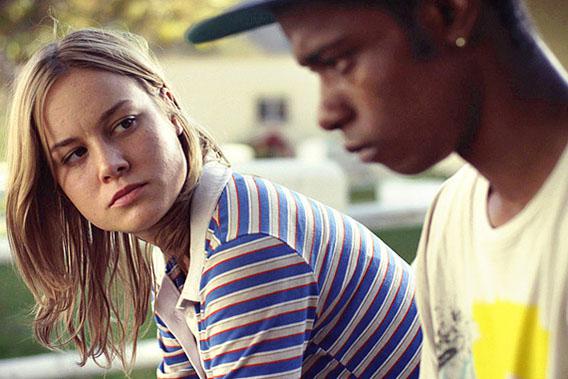The second feature of a young director named Destin Daniel Cretton, Short Term 12 is a film that sneaks up on you and makes you care about it. It’s a slight movie, barely an hour and a half long, with naturalistic overlapping dialogue and a loose, meandering storyline that can trick you into thinking it’s going nowhere in particular. But midway through you begin to realize that this apparently offhand tale has drawn you deeply into its singular, believable world.
The film’s title comes from the name of the juvenile care facility where it’s largely set, a group home for older children and teens who aren’t safe with their families or have demonstrated violent or suicidal behavior. There are some messed-up kids in this place—the angry, bottled-up Marcus (Keith Stanfield), the self-cutting, tantrum-prone Jayden (Kaitlyn Dever), the chronic runaway Sammy (Alex Calloway)—but they’re all treated with patience and respect by Grace (Brie Larson), the supervisor of the staff of twentysomething employees who spend their days there. Grace, whose live-in boyfriend Mason (John Gallagher, Jr.) works with her at Short Term 12, seems at first too good to be true: She’s warm, empathetic, level-headed, and deeply committed to her job, not to mention beautiful in an unassuming, earthy way. Grace has also just found out she’s pregnant—a fact we learn along with her early in the film, though we don’t at first understand why she’s keeping this fact a secret from the obviously besotted Mason.
The reasons behind Grace’s reticence—and the painful life stories she and Mason have both put behind them to end up where they are—will unfold only slowly over the course of the film, which focuses principally on the day-to-day interactions between the facility staff and the minors under their care. Marcus, who’s about to turn 18 and age out of the institution where he’s spent the past three years, begins acting out in ways that don’t bode well for his upcoming release. The usually sullen Jayden opens up to Grace about her horrific home life, and for reasons that, again, aren’t clear right away, Grace responds by getting more involved in Jayden’s family troubles than is ethical, legal, or safe. The change that takes place in Larson’s character in the second hour of the movie is at times shocking, but it’s shocking in the way real life can be: Larson’s quiet but intense and marvelously detailed performance makes it credible that Grace could be both a port in a storm for others and her own worst enemy. As Mason, Gallagher embodies a boyfriend type we rarely see onscreen: a genuinely good guy who’s neither a sucker nor a wimp. A scene in which Mason tries to convince the freaked-out, closed-off Grace that telling the truth isn’t just for their teen wards is romantic in the best sense—you know that she’ll never do better than this man, and you pray that she’ll recognize that before it’s too late.
Writer-director Cretton spent some years after college working at a facility similar to Short Term 12, and his rendering of the daily institutional environment, with its lurching swings between boredom and violence, feels accurate (even if the sheer number of crises that affects this place in a short period of time threatens to verge on the melodramatic). A movie with this setup—two attractive but damaged young people in love, working together to help abused and neglected children—could easily have been sentimental and condescending movie-of-the-week material. But when Short Term 12 reaches its last scene—filmed in a long slow-motion take that encapsulates both the difficulty and the exhilaration of Mason and Grace’s demanding jobs—the lump it leaves in your throat feels earned.
